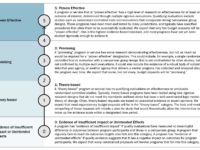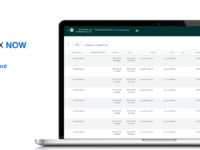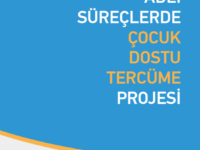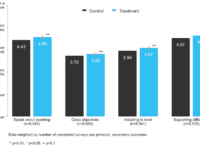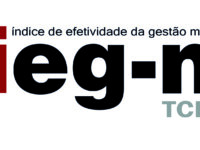Governments must judge hundreds of new programmatic budget proposals each fiscal year with little objective information about whether they will achieve the results claimed. Evidence of program effectiveness is a critical data point that is used when making budget and policy decisions, as programs with greater evidentiary support are generally more likely to deliver a high return on investment of public funds. The The Policy Lab at Brown University leveraged existing public clearinghouses of peer…
Innovation Tag: Behavioural Insights
Case Study
Voluntary Removal of Regulatory Barriers to Competition: Using Social Norms to Nudge Government…

INDECOPI has implemented a new project called “Voluntary Removal of Regulatory Barriers to Competition” based on the use of social norms in official documents and data dashboards to monitor the removal of bureaucratic barriers across the country. Through this, civil servants compare their performance in eliminating barriers with their peers and adapt their behavior towards high-quality regulation.
Case Study
Promoting Compliance through Effective Communication: An Application of the Framing Effect in the…
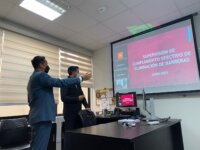
INDECOPI, the agency of competition in Peru, has created a specialized unit called “Effective Compliance Team”, which incorporates behavioral insights (framing effect) in their communication with other government institutions. Through this innovation, the government has a cost-effective tool to incentivize compliance, ensure the understanding of other institutions about bureaucratic barriers to competition, and benefit economic agents in the market and overall, the citizens of Peru.
First platform in the industry which support standalone and integrated workflow solution for any inspection,which leads to increased efficiency,security,and accuracy of inspection operations through virtual-inspection capability that enables the inspection teams to work remotely and reduce the need for field visits and addresses some pain points which includes inconsistency in quality,time consumption and resource management.stakeholders include Inspectors, Schedulers ,System admin,inspected org
The project is aimed to prevent the loss of the rights of refugee children in Türkiye due to language and translation difficulties in judicial processes. Children involved in judicial processes, translators, judges-prosecutors and other auxiliary judicial staff have benefited very much from the project. For the first time, the capacity of translators has been strengthened and the secondary trauma risks of children have been mimized.
Providing school principals with simple rules of thumb improves school management practices and support to teachers in cost-effective and scalable ways. Evidence from an impact evaluation by the Ministry of Education in Guatemala and the Behavioural Insights Team showed that, an intervention inspired by the behavioural science literature, increased the frequency and quality of school management practices by principals and the satisfaction of teachers in Guatemala.
The reason for creation was to improve inspection models of external control, which were based mainly on legality and conformity. IEG-M index is an instrument for measuring public area effectiveness, as it analyses the inputs, resources and processes of the local administration, evaluating its policies and activities. There are many finalistic results indexes, but none of them deals with the evaluation of processes to analyse the application of public money that impacts local communities.
Public sector agencies are generating more video/image data but much of the data is not leveraged due to the high overheads and custom requirements in processing video. The VAS platform provides easy access to a spectrum of in-house and industry developed video analytics capability as well as model prototyping capabilities for agency use cases. The key innovation focus on bringing together a scalable platform, lowering the barrier of entry for usage of video analytics, empowering the pub
Case Study
The Happiness Curriculum: Inculcating mindfulness and social and emotional learning amongst students…
The Happiness Curriculum (HC) is the first systemic step towards holistic development of all learners under the formal education set up. Launched in 2018 by his holiness Dalai Lama, this is the first time in the world, that there is a curriculum that focusses on inculcating mindfulness and social emotional learning as a practice every day at such a big scale. It is being implemented with more than 800,000 students from kindergarten through Grade 8 across more than 1000 Delhi government schools.
Case Study
Farishte Dilli Ke – Empowering Citizens Through Accessible and Reliable Emergency Healthcare…
Farishte Dilli Ke (Hindi for Saviours of Delhi) uses innovative fiscal and non-fiscal incentives to encourage citizens to become Good Samaritans by helping victims of road traffic accidents, thermal burns and acid attacks without the fear of legal hassle or police enquiry. Under this scheme, the victims receive cashless treatment at any registered public or private nursing home or hospital across Delhi benefitting more than 18,919 people in the last 5 years.

